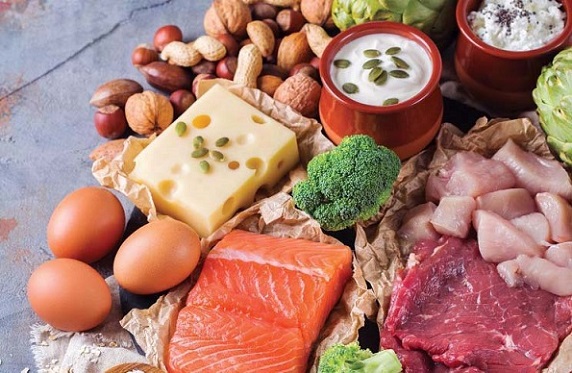Nikhil Prasad Fact checked by:Thailand Medical News Team Oct 16, 2025 4 months, 2 weeks, 4 days, 23 hours, 6 minutes ago
Medical News: Researchers uncover the link between fats and tumor growth
A groundbreaking study by scientists from the Huntsman Cancer Institute at the University of Utah has found that certain fatty acids associated with obesity may play a key role in fueling aggressive breast cancer growth. The research, conducted using preclinical mouse models, revealed that lipids—molecules commonly elevated in people with obesity—can accelerate the development of triple-negative breast cancer, one of the most difficult forms to treat.
 Fatty Acids That Drive Obesity and Keto Diets Linked to Breast Cancer
Fatty Acids That Drive Obesity and Keto Diets Linked to Breast Cancer
This
Medical News report highlights that the study suggests individuals with obesity who are diagnosed with breast cancer should exercise caution when following high-fat diets, including the popular ketogenic diet. Researchers say such diets, though effective for weight loss, could worsen the metabolic conditions that help tumors grow faster.
Lipids fuel breast cancer cells like “building blocks”
Dr. Keren Hilgendorf, a lead investigator at the Huntsman Cancer Institute and assistant professor of biochemistry at the University of Utah, explained that breast cancer cells appear to be “addicted” to lipids. “The abundance of lipids in patients with obesity is one of the reasons that breast cancer is more aggressive in these individuals,” she said. Her team included Dr. Amandine Chaix, assistant professor of nutrition and integrative physiology, and Dr. Greg Ducker, assistant professor of biochemistry, both also from the Huntsman Cancer Institute.
The researchers found that high levels of fats in the blood—known as hyperlipidemia—are enough to trigger tumor growth, even without other obesity-related factors such as high glucose or insulin levels. In experiments using mice, tumors grew significantly faster when lipid levels were elevated. However, when lipid levels were reduced, even in animals with high blood sugar, cancer cell growth slowed down dramatically.
High-fat diets like keto could have unintended effects
The research raises important questions about how people with obesity should approach weight loss. Many turn to the ketogenic diet, which is rich in fats and low in carbohydrates, to shed extra pounds. While this diet forces the body into ketosis, where fat becomes the main energy source, it may also provide tumors with additional lipid “fuel.”
Dr. Ducker cautioned, “For patients who are diagnosed with breast cancer and have high cholesterol or triglycerides, diets like keto could have serious unintended consequences—even causing tumors to grow faster.” Instead, the researchers suggest considering weight loss plans or medications that specifically lower lipid levels rather than relying on fat-heavy diets.
New directions in cancer prevention and therapy
The findings indicate that high lipid levels could also influe
nce other obesity-related cancers such as ovarian or colorectal cancer. The researchers plan to explore whether anti-lipid drugs can enhance chemotherapy effectiveness and how tumor cells use lipids to sustain their growth. By targeting lipids rather than just glucose or insulin, scientists hope to find new strategies to slow down or prevent cancer progression.
The bigger picture
This study provides a new perspective on the long-observed link between obesity and cancer. It suggests that it’s not just extra body weight that matters but the metabolic imbalances caused by excess fats circulating in the blood. While obesity is already recognized as a risk factor for at least 13 types of cancer, this research points to lipid control as a potential key to reducing cancer risk and improving treatment outcomes. People with obesity who are cancer survivors should be especially cautious when choosing diets, as not all weight loss plans improve overall metabolic health. The researchers emphasize that future cancer care should consider a patient’s metabolic profile and the potential impact of high-fat diets.
The study findings were published in the peer-reviewed journal: Cancer & Metabolism.
https://cancerandmetabolism.biomedcentral.com/articles/10.1186/s40170-025-00407-0
For the latest on Breast Cancer, keep on logging to Thailand
Medical News.
Read Also:
https://www.thailandmedical.news/articles/cancer
https://www.thailandmedical.news/articles/diets-and-nutrition
